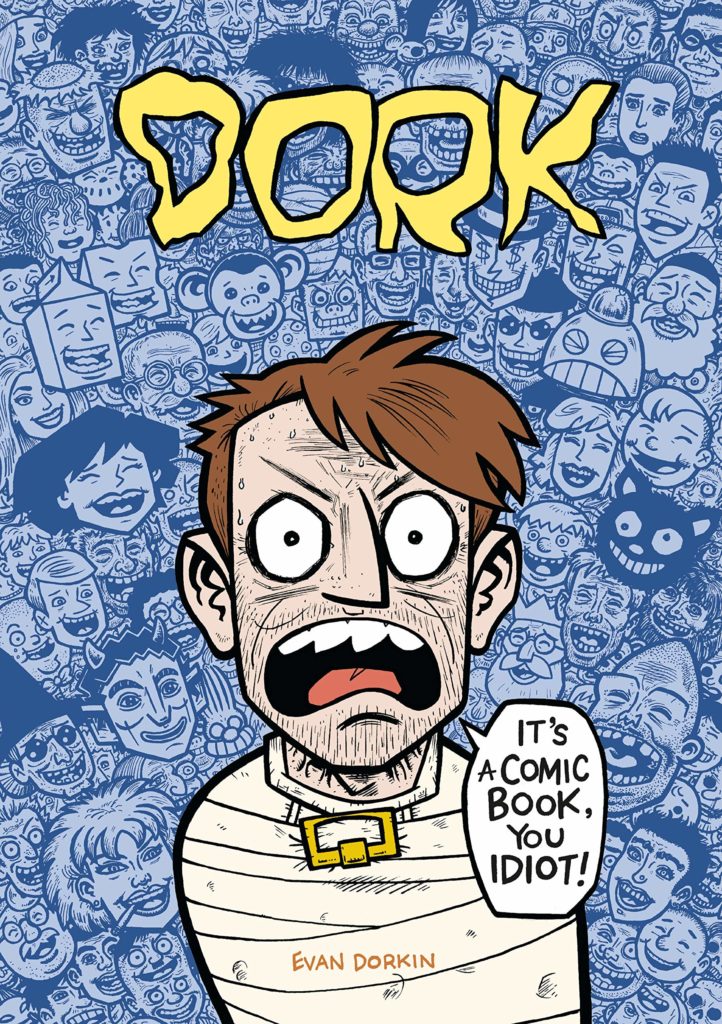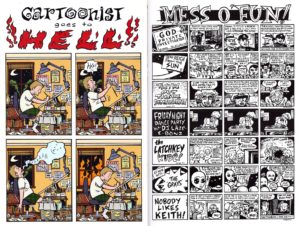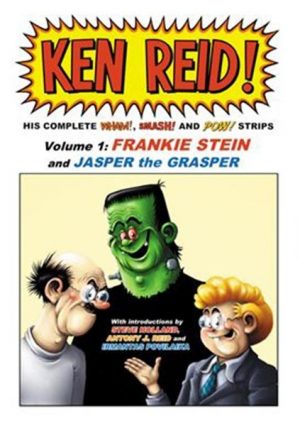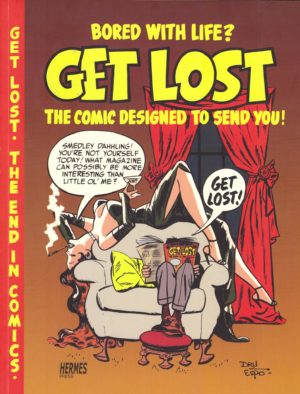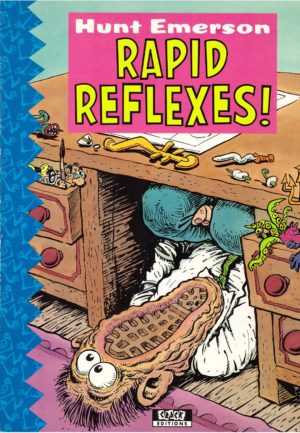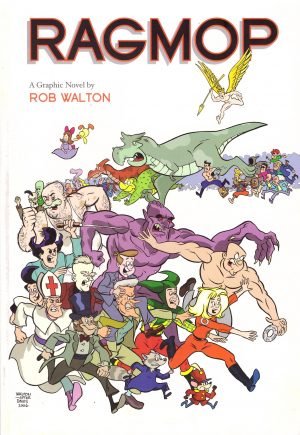Review by Frank Plowright
If a single graphic novel is all you can have in the house during self-isolation Dork has to rank high on the list of desirable items, simply on the basis of density alone. The 272 pages are packed, dozens of them featuring five to seven single tier gag strips on the most random topics, but crucially almost all funny. Following a two page illustrated introduction, Dork’s opening pages swerve from a faked sitcom about a family of serial killers to a Fisher Price theatre version of Catcher in the Rye, then to an autobiographical anecdote about giving change to the homeless. That’s followed by six single pages, starting with a nutty stream of consciousness piece, then depictions of ketchup mishaps, a commentary about celebrity aid to Africa, a dark gag about three wishes, a sarcastic set of Comic Industry Trading Cards, and the heartwarming ‘Life’s Great Rewards’. This frenetic virtuosity all precedes the first helping of single tier strips. There’s a roughness or deliberate looseness to some of the cartooning, but most is polished and continues that way.
Extras are provided, but with the exceptions listed by Dorkin in the introduction, Dork largely reprints the comic of the same name produced from 1992, which began as scattershot humour in the course of which Dorkin also railed at the world. Nothing irritates him more than a phoney, unless it’s a bandwagon jumper, both found throughout 1990s culture, and their pretensions are laid out in detail. Yet as Dork continued it became more introspective, culminating in 23 astonishing pages in which a depressed Dorkin metaphorically rips himself to shreds. It’s a breakdown in pen and ink, his past and his neuroses tumbling out with such an intensity that he feels obliged to include a new strip explaining he’s okay. Yet even in the midst of all that, Dorkin still draws and phrases his rambling in a way that’s funny; obviously not as laugh out loud as the gags, but funny nonetheless. It’s one for the therapists to analyse.
Normal service is resumed and the Devil Puppet, so appropriately used in the confessional material, becomes an all-purpose introductory device, and pages of single panel cartoons now accompany the strips. Some Milk and Cheese strips appear later on, but they have their own collection, as do the Eltingville crew whose lives Dork originally detailed so excrutiatingly. Several more Murder Family episodes appear, eventually in colour, Dorkin savaging mediocre sitcoms with their laughter tracks and feeble punchlines, yet simultaneously supplying viably funny plots. Not part of the joke, but something Dorkin surely appreciates, is that you could actually make that show today on HBO or Showtime. Even strips that aren’t all they might be, like ‘Mighty Carl Jung’ conflating the analyst with the giant gorilla, are redeemed by Dorkin’s exceptionally busy cartooning, the packed panels never seeming cramped. It’s probably no joke that his back cover self-portrait features a tube of pain-relieving arthritis gel.
It’s also worth noting that as well as being hilarious and wonderfully drawn, the strips are smart. Dorkin sweeps over pop culture, literature, art, music, social commentary, every joke relevant, although some cultural references have dated, as he notes himself. It’s inevitable with humour, and despite most of the work having been produced in the 1990s, there’s enough laughs here to more than justify the cover price.
A fair proportion of the content was previously reprinted over two paperbacks, Who’s Laughing Now? and Circling the Drain, but considerable amounts of extra content make this the better purchase.
